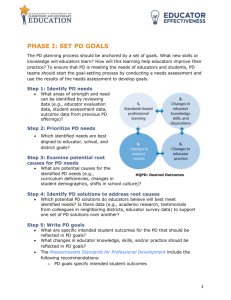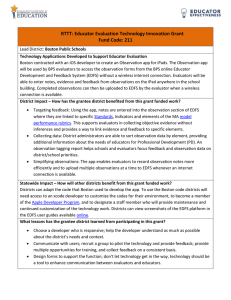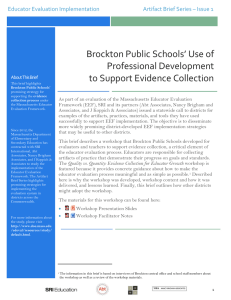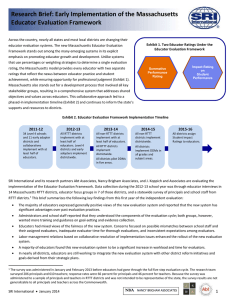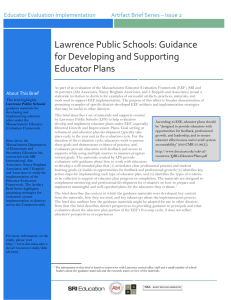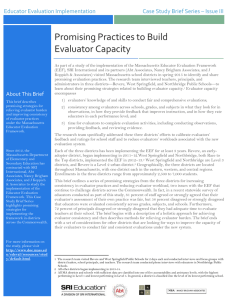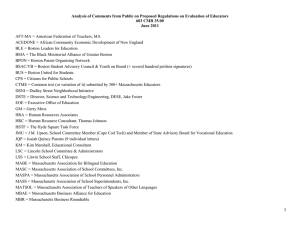Monson Narrative
advertisement
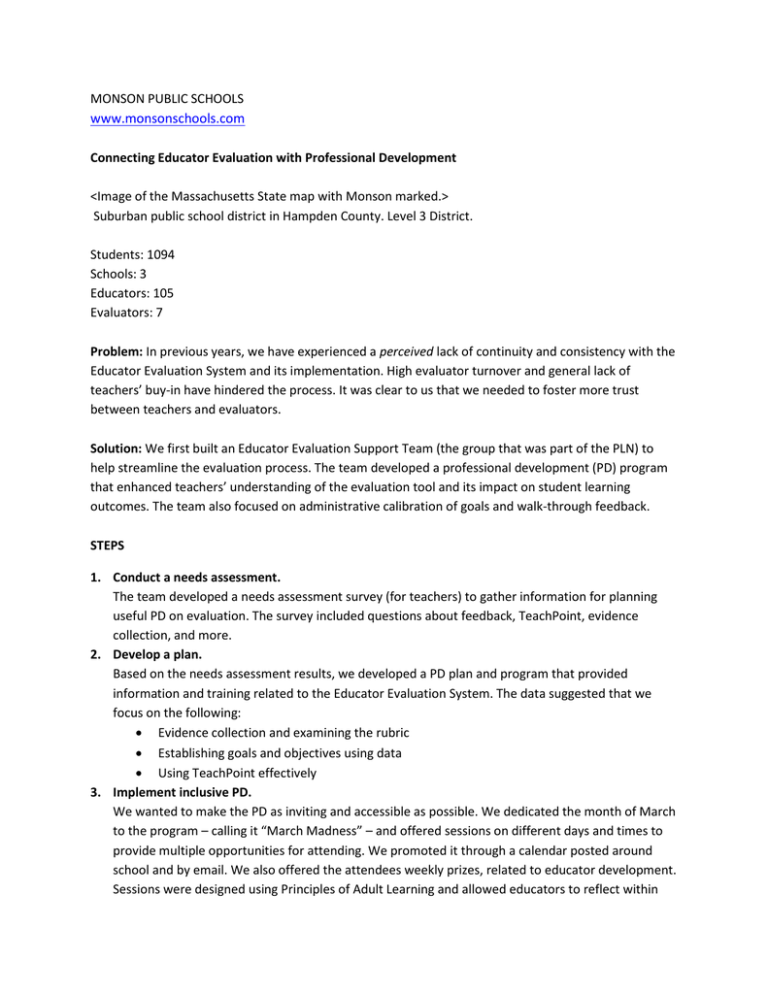
MONSON PUBLIC SCHOOLS www.monsonschools.com Connecting Educator Evaluation with Professional Development <Image of the Massachusetts State map with Monson marked.> Suburban public school district in Hampden County. Level 3 District. Students: 1094 Schools: 3 Educators: 105 Evaluators: 7 Problem: In previous years, we have experienced a perceived lack of continuity and consistency with the Educator Evaluation System and its implementation. High evaluator turnover and general lack of teachers’ buy-in have hindered the process. It was clear to us that we needed to foster more trust between teachers and evaluators. Solution: We first built an Educator Evaluation Support Team (the group that was part of the PLN) to help streamline the evaluation process. The team developed a professional development (PD) program that enhanced teachers’ understanding of the evaluation tool and its impact on student learning outcomes. The team also focused on administrative calibration of goals and walk-through feedback. STEPS 1. Conduct a needs assessment. The team developed a needs assessment survey (for teachers) to gather information for planning useful PD on evaluation. The survey included questions about feedback, TeachPoint, evidence collection, and more. 2. Develop a plan. Based on the needs assessment results, we developed a PD plan and program that provided information and training related to the Educator Evaluation System. The data suggested that we focus on the following: Evidence collection and examining the rubric Establishing goals and objectives using data Using TeachPoint effectively 3. Implement inclusive PD. We wanted to make the PD as inviting and accessible as possible. We dedicated the month of March to the program – calling it “March Madness” – and offered sessions on different days and times to provide multiple opportunities for attending. We promoted it through a calendar posted around school and by email. We also offered the attendees weekly prizes, related to educator development. Sessions were designed using Principles of Adult Learning and allowed educators to reflect within the lens of their own practice using case study examples. What made this unique among other offerings is that this particular PD was developed and cofacilitated by the Support Team and eight other teachers from across the district. Teachers stepped forward to share their own experiences and best practices. So far, both anecdotal and formal feedback (using post-PD surveys) on March Madness has been overwhelmingly positive! 4. Refine the process. PD is not the only solution to the building of trust between evaluators and educators; we still plan to enhance other offerings for all participants. We are working on strengthening the mentor program to ensure support for new teacher evaluation. In addition, we’re adjusting walk-through forms, creating equity in observations, and creating a district guidebook for consistent expectations. We’ve also worked with EDi on a delivery consultation to understand our strengths and weaknesses with implementing evaluation. Reflections on the Process: We have received positive feedback from teachers and support from the Superintendent. Teachers are having richer conversations about professional growth and in turn strengthening our district-wide rigor to enhance evaluator capacity. We have learned that: Check-ins with teachers and evaluators must be done on an on-going basis, both formally through surveys and informally through conversations. Relationship building between evaluators and teachers is a continuous process. Give teachers an opportunity to take the lead in PD! Streamlining the forms, observations, and process takes time, but is something we need to enrich our culture of evaluation. Quote – "The energy and insight produced when we work collegially to improve our teaching practice is undeniable. The impact that this has for our students' learning is limitless." – Katherine B. Watts, Director of Curriculum <image of ESE logo> <image of Educator Effectiveness logo> Prepared for ESE’s Professional Learning Network (PLN) for Supporting Evaluator Capacity – May 2015



